Health Matters is a weekly radio show sponsored by the Medicine Center Pharmacy on WHBC 1480 AM in Canton, Ohio. This episode pharmacists Brad White and Paul White discuss Medicare Open Enrollment with Joe Seely.
Zoom Video
Thanks for listening today! We’d like to remind our listeners, if you suspect you have a medical issue, please contact your healthcare provider. Thanks to our sponsors Mercy Medical Center, Studio Arts & Glass . As always, we thank our listeners for joining us on Health Matters with the Medicine Center Pharmacy. Have a healthy week and we’ll see you again next Friday right here on News Talk 1480 WHBC.
Podcast Audio
Transcript from Show:
Q: You have a lot of experience in the healthcare industry, can you briefly list your background?
A: Well, I spent 35 years with a national wholesaler, the largest in the United States and the last ten years of that was in Operations for a nation-wide, 47-hundred store virtual chain. My Operations duties included developing staff training for the 47-hundred stores, developing operational support programs, tracking growth along with other administrative duties. The biggest challenges there was continually adapting to industry changes. I retired from there in 2016.
Then, I went to work in my second career at Medicine Center Pharmacy…again in Operations and I faced some of the same challenges all over again. The only difference was that it was much more ‘hands-on’ and much more rewarding. I got a chance to see if everything I learned in the previous 35 years and taught to our member stores actually made a difference and were worthwhile. I also got involved in many different and ‘new-to-me’ responsibilities. The three years here have been as rewarding as the previous 35. I got to be involved in so many different things.
One of the most rewarding jobs was sitting down last year at a table in each of our stores and assisting about 350 of our senior customers in selecting the best Medicare plan for them based on their specific needs. I became part of the great customer service that our staff, our pharmacists and technicians bring to the table every day.
Q: So you’re our Medicare Enrollment Specialist?
A: No, I am not a Medicare Enrollment Specialist, there really isn’t such an animal with a formal credentialing…but Medicare rules are very specific. All I can do is present the information to the patient honestly and inclusive of all of the plans that are available to them. I can’t hide any plans or misrepresent plans. I just present the facts, an estimate of Out-of-Pocket costs for the patient based on the current year and instruct the customer how to proceed with his or her choice. There are so many terms, choices, a step by step order of events…it can be very confusing to so many people.
At Medicine Center Pharmacy, we purchase access to a very sophisticated and all-inclusive software system that loads in all of the Medicare Advantage and Medicare D plans available according to any specific zip code. It factors in their specific prescription usages and their specific needs then sorts those plans for the customer. I learned enough about the system to use it pretty well and then last year, I was lucky enough to have that sit-down session with some of our customers.
Q: This sounds like it is going to be confusing. Maybe we should start at the beginning. Let’s say I am 64 and will soon be retiring and eligible for Medicare. What can I expect?
A: Well for one thing, a lot of junk mail and two or three marketing robo-calls every day! Seriously, it is overwhelming! And so misleading! Every caller tells you they are from Medicare and going to walk you through enrollment…They are not from Medicare. Medicare doesn’t call. They are from any of the several insurance companies that want to help you sign up for their company’s insurance. You need to do this yourself or talk to someone you trust that will help you through this process…not a random caller on the phone.
Medicare starts at age 65 for most people; it can start earlier for others that suffer from specific disabilities or other special situations, but that isn’t the usual case. To qualify for Medicare, you must be a US Citizen or a legal resident that has lived in the United States for 5 consecutive years. At your 65th birthday, you are in what is called the Initial Enrollment Period.
If you are already receiving Social Security, perhaps for a disability or perhaps you just decided to take Social Security early, perhaps at age 62, the process is automatic. Three months before your 65th birthday, you will just receive your Medicare card in the mail. Sort of an early, ‘Happy Birthday’ present.
If you are not receiving Social Security, you need to initiate the process.
You can enroll in Medicare 3 months before your birthday month…so if your birthday is in April, then on January 1st, that is January, February, March…1-2-3, 3 months before your April birthday month. The Initial Enrollment Period then goes for 3 months after your birthday month. So your April birthday means that May, June and July are also part of the enrollment period. The Initial Enrollment Period or window is seven months.
The easiest enrollment is done through the Social Security website, or you can do it via telephone, or in person at the nearest Social Security Office. The process from initiating enrollment to receiving a Medicare card and number back in the mail takes only about 3 weeks.
Q: So everyone has to enroll in Medicare? And do you have to do it at age 65?
A: No, I guess no is the answer to both questions. This is America, a free country so ‘having to’ is subjective. However, if you do not enroll in the Initial Enrollment Period, that seven-month enrollment window around your 65th birthday, there will be monetary penalties to pay when enrolling later. Unless there are specific circumstances, when you do decide to enroll, the penalties will be a percentage of the costs increased by every month you delayed. So you can understand that you need to get this done.
Some of the Special Circumstances for not enrolling may include that you are still working and your employer has you covered in a valid health care plan and you don’t need Medicare. Or that you have own coverage on the open market…the important thing is that you have health coverage and that is what delayed you from enrolling in a timely manner.
If you don’t enroll in the Initial Enrollment Period, there are two other chances to enroll. There is the ‘General Enrollment Period’ which is every year from January 1st to March 31st. Remember if you wait and enroll then, there may be that monetary penalty to pay for delaying.
There is also the ‘Special Enrollment Period’. There are a few reasons you may qualify for this, such as you retire and lose your health coverage after you are 65, or you were enrolled in one plan already but moved out of your plan’s service area. There are some chronic health conditions that qualify a patient for the Special Enrollment Period or enrollment into a State Medicaid program. There typically is no penalty for enrollment if you qualify for the Special Enrollment period.
Q: So you have your card, you have your number. What does that cover?
A: Your card comes in the mail within two or three weeks after applying, that is provided the application is accepted. If there is missing data, there may be a couple of phone calls to make…but there should be little standing in the way of getting this done. Your card comes with your 16-digit Medicare number and the date of enrolling in Medicare Part A and Medicare Part B.
Medicare Part A will cover your hospital stays and in-patient care while you are in the hospital. Medicare Part B will cover your doctor visits and outpatient care.
Q: Is there a cost for Part A and B?
A: If you or your spouse has worked and paid taxes to Medicare for more than 10 years, there is no fee for Medicare Part A, the hospital and inpatient part of Medicare. If you don’t meet that 10-year requirement, there can be monthly fees assessed. The fees are based on how much you did work and pay Medicare taxes.
There is a standard fee for Medicare Part B, the doctor and out-patient part of Medicare. The standard monthly fee for Part B in 2020 is about $144. This was a $9 increase from 2019. It has not been shared what the fee will be next year, in 2021. The fee can be higher if you have a higher income.
Q: So that’s all you need? Medicare A & B?
A: No, that covers your hospital and doctor costs, but there is so much more. A very large part of your Health Needs include prescriptions and neither Part A or Part B have you covered on that. Prescriptions are covered by Medicare Part D, and that is an annual enrollment. After you have received your Medicare card in the mail, you need to pick out a Medicare Part D plan that covers prescriptions and it is very wise to pick out a Part C plan. Unlike Part A and Part B which are one-and-done, Part C and Part D have an initial enrollment period and then are renewed or reviewed annually, every October 15th to December 7th.
Q: Part C? Part C? No fair. You haven’t mentioned Part C yet.
A: I didn’t mention Supplemental Programs either.
Part C is easy. Part C is bundled. Part C wraps Part A, the hospital with Part B, the doctor and most of the time, adds in Part D, the prescriptions into one program. Depending on the Part C program you chose, there might be limits on networks and accessibilities. But the limits result in cost control for the cardholder and usually for the network. It also puts caps on the annual cost to the patient. The cardholder’s Maximum Out-Of-Pocket costs are capped at a specific dollar amount, depending on the plan that is chosen.
Q: Explain the Maximum Out-Of-Pocket costs.
A: Let’s say you have a Medicare card with A and B coverage and to cover your drugs you just have a Medicare D coverage. You can take that Medicare card anywhere that accepts Medicare and Medicare will pay a percentage of the doctor or hospital bill. You will be billed for the residual. Get a thousand dollar doctor bill, you pay your 20% and Medicare pays the rest. What costs $1,000? Getting your tonsils out maybe? Your part of the bill or your responsibility to pay will be $200. A trip to the emergency room for a broken arm? Maybe that will only cost $1,000. What about something more serious…heart surgery for instance? How much can that run…$100,000? $150,000? More? You are still responsible for that same percentage of the bill. There is no cap on your responsibility. That is why you should have coverage under Medicare C, or what is known as a Medicare Advantage plan. This protects you from catastrophic events raiding your savings. Most every Advantage Plan or Part C plan includes coverage for Part D.
Supplemental programs are another form of Medicare Advantage plans. They are often part of a retirement pension or can be purchased individually. They rarely contain prescription coverage, or Medicare D coverage and the cardholder is asked to enroll for Medicare D to cover their prescriptions on their own. Supplemental plans usually have much higher monthly premiums than Advantage plans, but the Out-Of-Pocket costs are capped at a much lower amounts.
Another big advantage to Medicare Supplemental plans or Medicare Advantage plans are that more areas of health care are covered. We stated that Medicare A covers the hospital and in-patient services, Part B covers physician and out-patient services and Part D covers prescriptions. We left out Eye Care, Dental Care, and hearing aids, all of which can cost quite a bit. This is what is nice about Advantage Plans and Supplemental plans is that often, these other health care items are provided some coverage and Out-Of-Pocket costs are reduced for the cardholder.
Q: Do I have to have Medicare D coverage? What if I don’t take any prescriptions and want to wait until later.
A: The same penalties for delaying enrollment that applied to Medicare A and B apply to Medicare D. For every month you didn’t sign up, the premium will be raised by a percentage.
Paul Q: What about these discount cards? Like The Martin Sheen card…Single Care or the Good Rx Card. Do these count as Medicare D coverage?
A: No, most definitely not. I know seniors that believe they do count though, sad to say. And now, they realizing that they’ve made a mistake they face a penalty to enroll in a Medicare D coverage. Brad can probably answer this better than I can as to what these cards are good for.
• Can be Ok for cheap, maintenance generics
• Similar to our own Generic Wellness program
• Provides legal access to discounted prescriptions or cash prices
• Bypasses more expensive third party copays or deductibles
• Horrible for brand pricing as it provides for no cap in spending
• Imagine a catastrophic disease state trying to cover prescription costs with a card that doesn’t have an Out-Of-Pocket cap for customers
• Cancer - Specialty Drugs
• Diabetes
Q: Ok, so we need to have Medicare C coverage either through an Advantage plan or a Supplemental plan and we need to have Medicare D coverage for drugs. But why do we have to go through this enrollment period again, every year after year after year?
A: Things change. Everything changes. Your health needs change. Your prescription needs change. The health care plans themselves can change. Your address may change and you may be in a regional plan that isn’t available in your new address. As we grow older, new health issues may challenge us. Any of these changes or new challenges may determine that the plan you chose last year, two years ago or upon initially selecting a plan is not the right plan for you anymore. CMS, or Medicare recognized this when adding Part D in 2006. One study done by one of the plans was reported in Drug Store News that as many as 9 out of 10 Americans are not in the plan best suited for their specific needs.
There are also incentives for plans to get better. Plans are rated from one-star to five-stars. The ratings are based on many things, customer service is just a part of the rating. If you signed up for a plan and their ratings fell to just one or two stars…wouldn’t you welcome the chance to switch to a different, higher rated plan? A plan that is better in access and customer service? Of course you would. No one likes not being treated well, not being treated as a valued customer.
So sitting down and reviewing the options available to you every year during the enrollment period is the smart thing to do.
Q: Nine out of ten? Is that right? When you sat down with our customers last year, did it seem like only one out of ten was in the right plan? How many did you say, 350 customers?
A: Unfortunately, I didn’t keep track of the interviews. The estimate was that we saw between 350 and 400 customers during the 7-week enrollment period. But to answer your question…yeah…surprisingly so. There were very few customers that I put into the database, added their prescription needs, their primary physician, hit the magic ‘sort’ button and got, “Voila, You’re in the perfect plan!”
Q: If they weren’t in the ‘perfect plan’. Were you able to save them money and change them to ‘the perfect plan’?
A: I was able to share the analysis with them. Remember, legally I am not there to change them from one plan to another. Legally, all we can do is provide a fair and honest representation of their spending expectations forecast for the next year. It is a forecast based on this year’s usage and needs. We are not alone in this, anyone offering to do an analysis is bound by this same rule. We provided the printed analysis, and something not many others do, we provided access to the same database we were looking at so they could verify the information with another source.
Q: Did customers like that?
A: Oh yes, most definitely. Many took the access and stated that they would look at it at home, or have their son or daughter look at it, someone they trusted without question or someone that already helped them with making decisions. The access we give to the database also has quick, online links to enroll and access to those giant manuals that spell out everything the plan covers. I got the sense that there was gratitude for the access and actually heard back from customers later about how nice this made the enrollment process.
Q: So did we see a lot of people changing last year?
A: Big sigh here. You know how many people are…there seems to be such a resistance to change. I remember one customer that decided to change from her current plan because a different plan was projected to save her $18 for the next year. She said something about, “$18 dollars is a nice lunch out…better me than the insurance company!” I applauded her. But I also had others that would have saved over $1,000 by switching and still refused because, “That is the company I have always had and they have always done me right.” There were so many reasons given for not changing.
• The loyalty as I mentioned
• Some stated that the phone call to make seemed like too much trouble
• There was the fear that their doctor or their hospital might not be accepted on the new plan (another phone call)
• There was always the story, “I had my gallbladder out 10 years ago and do you know what the bill was to me? Nuthin, absolutely nuthin.” In the meantime I see the monthly premium is substantial, actually quite substantial.
Mostly people just resist change. I guess that is in our nature…we become complacent with what we have and don’t accept that it could be better. I still applaud the lady that changed for her $18 and her nice lunch out. She gets to go to her same physician she always went to, use the same hospital that was always available for her and the same pharmacy for her prescriptions. She just writes a check to a different insurance company every month and I hope she actually had that very nice lunch.
Q: Cute story. I hope she had that nice lunch also. What should our customers consider when making their choices?
A: Many things go into the selection. And there are so many different plans available.
• First of all, are they looking for only Medicare Part D coverage or do they need to consider a Medicare Advantage plan? If they have Supplemental plan or a retirement plan that includes health care coverage with a cap on out-of-pocket costs, then a Medicare Part D, prescription coverage is that is needed. Typically, in fact always, there are monthly premiums associated with this coverage unless you qualify for dual coverage. Dual coverage is where you are eligible for both Medicare and Medicaid. The higher the monthly premium, the lower the co-pays.
• There are many different plans, you need to sort through them to find the best fit for you
• Some require mail-order or limit which pharmacy you can go to. They sort by ‘preferred’ network pharmacies or out-of network or ‘non-preferred’ pharmacies and may charge different co-pays depending on your pharmacy choice.
• Some limit what specific prescription items they may cover and may force you as a patient to change. A good example of this is Proventil vs Ventolin inhalers…both the same inhaler, both virtually the same medicine yet insurance companies seem to choose which one they will cover and which one they won’t.
• Different plans have different deductibles to meet…and not every prescription counts towards the deductible. For instance, on several plans, Eliquis, a popular heart medication for patients with AFib, counts as a prescription that is part of your deductible. That first fill in January may cost you several hundred dollars. On other plans, Eliquis is accepted as a perfectly usual item and does not count towards your deductible.
• If you are not capped by a supplemental plan, you want to look for an Advantage Plan. Like Part D plans, there are many different plans, you need to sort through them to find the best fit for you.
• Most State Medicaid patients will be forced into a limited number of plans and will not have as wide a selection to choose from
• There are both regional plans and national plans available. Someone that winters in the south three months a year may want to be sure to select a national plan so that health care visits when away from home are not labeled ‘out of network’. This is true for anyone that travels extensively .
• Advantage plans can cover dental, eye and hearing needs. If your hearing is perfect, or you have no teeth you might choose a plan that does not include that portion for a lower monthly premium. Advantage plans can also offer memberships to gyms or exercise facilities, sort of a healthy life-style incentive.
• There are those Advantage plans that have no monthly premium to pay but perhaps have higher deductibles or higher out-of-pocket costs. Others have a substantial monthly premium but lower deductibles and much lower cap on the total out-of pocket costs.
• There are HMO’s, (Health Maintenance Organization) defined networks of which physician or hospital is considered ‘in-network’.
• Pros - Lowest costs
• Cons - Less choice and Specialty Care is harder to get
• There are PPO’s (Preferred Provider Organization) which allow the patient go anywhere that accepts that Advantage card.
• Pros - Free choice of physician and services
• Cons - Out of network choices will result in much higher copays
• There are POS (Point Of Service) plans…sort of a marriage of the other two plans.
• Pros - maximum freedom. Go anywhere and you don’t need a referral from your Primary Care Physician.
• Cons - Higher co-pays and deductibles for non-network services.
Really, you need to look at your prescription usage, just like in Part D, and your expected health care needs for the next year. It is very important to plan ahead. There were a few cases in last year’s patient interviews that played into the selection. One customer had just been diagnosed with Diabetes; she knew her health needs for the next year were going to change dramatically. Another shared with me her diagnosis for Stage 4 lung cancer and wanted to pick a plan based on that.
Q: Joe sat in each of our stores last year conducting these patient interviews and supplying the choices and analysis’s to our customers. He will be bouncing around to all of our stores the next few weeks doing the same this year. Do you know your schedule yet?
A: Yes, the enrollment period actually opened up yesterday, on the 15th. I am going to start next week, Monday through Friday in our Louisville store.
The week of October 26th, I will be in our Minerva store, then on November 2nd I will be in our Canton store. The week of November 9th, I will be in our New Philadelphia store and then back to Louisville for November 16th. That takes us into Thanksgiving week in which we will not be actually in any of the stores.
The week after Thanksgiving is the last week of enrollment. I believe we will be doing ‘last minute’ interviews by phone only.
We will of course be taking the proper precautions due to the pandemic, by sanitizing the area of the interview after each patient, and keep social distancing in mind.
Customers interested should call the stores and schedule an interview. If those times are not or do not work for your schedule, we have people in the store that are trained and can assist.
Q: How long does this process take?
A: Good question, I have no good answer. Some of the interviews last year were done in the course of five minutes, there were others that took 20 minutes to a half hour. We tried to schedule them and for the most part, customers didn’t have to wait long.
Q: Should customers bring anything to the interview.
A: Yes, their current health care card and if they are not Medicine Center customers, a list of prescriptions. If they are Medicine Center customers, we should be able to pull their prescription profile up from our history. But the insurance card is important. It shows us exactly what their current plan is.
Q: Thanks Joe. Any final thoughts?
A: No, well yes, I do have a couple.
I just wanted to re-state how rewarding I found this to be last year. Meeting our customers, assisting them with their selections…I have to be honest. It made me wonder if I wasted away my career in Operations. Customers and having contact with them was truly wonderful and personally rewarding. Brad, Paul, Nancy back at the office…Thanks so much for allowing me to do this again this year.
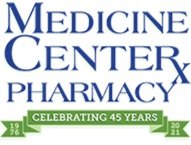














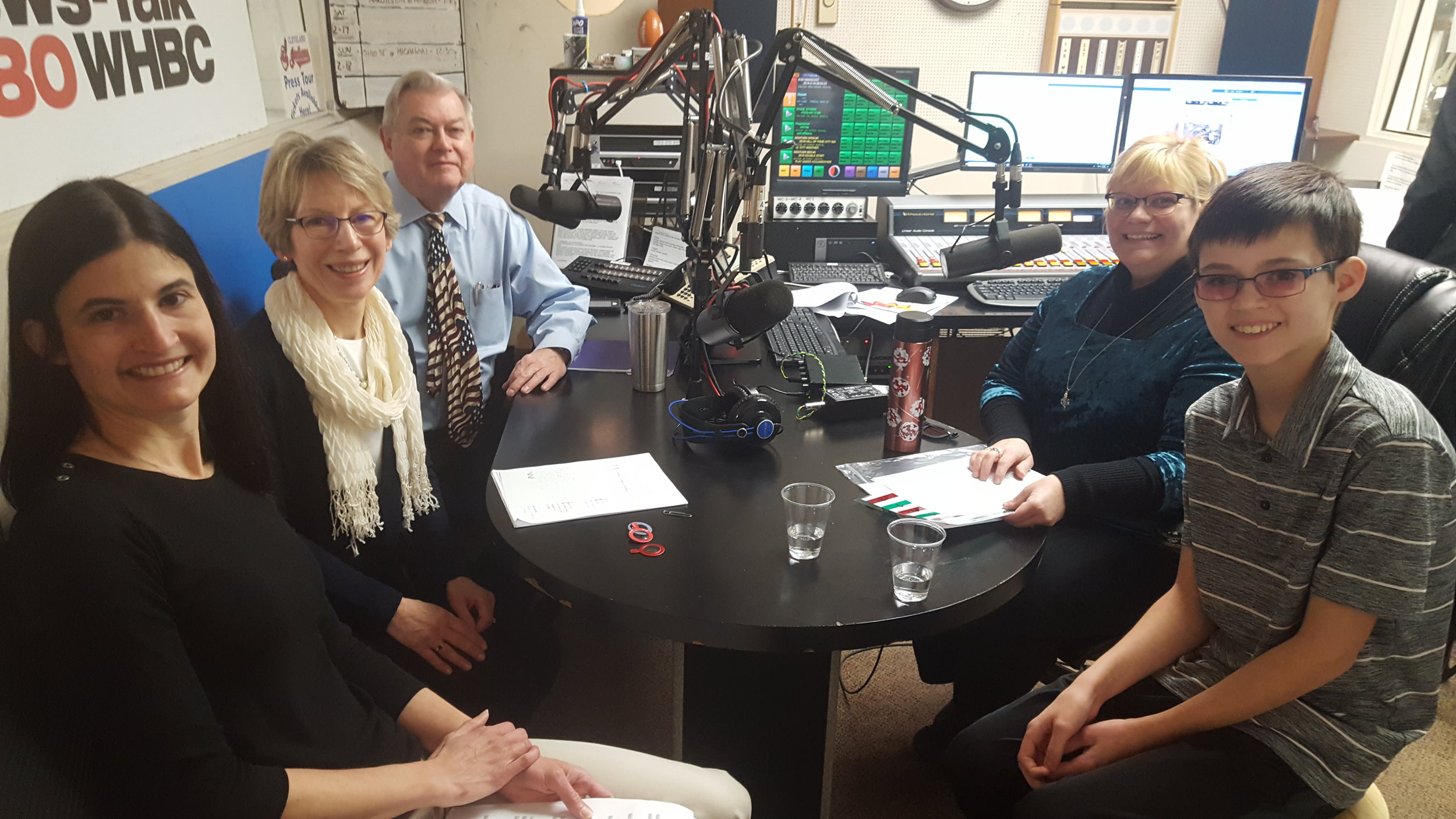








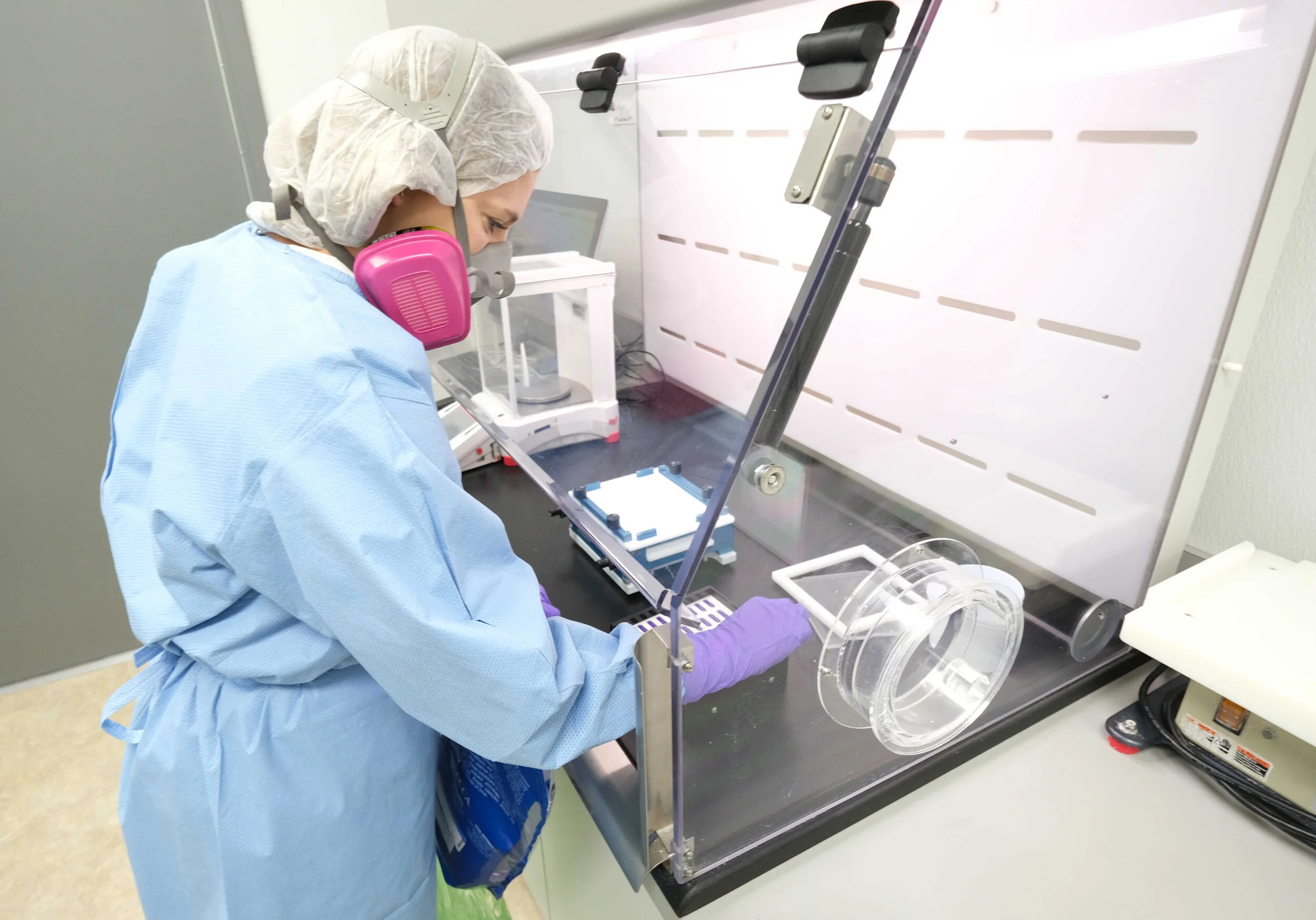
















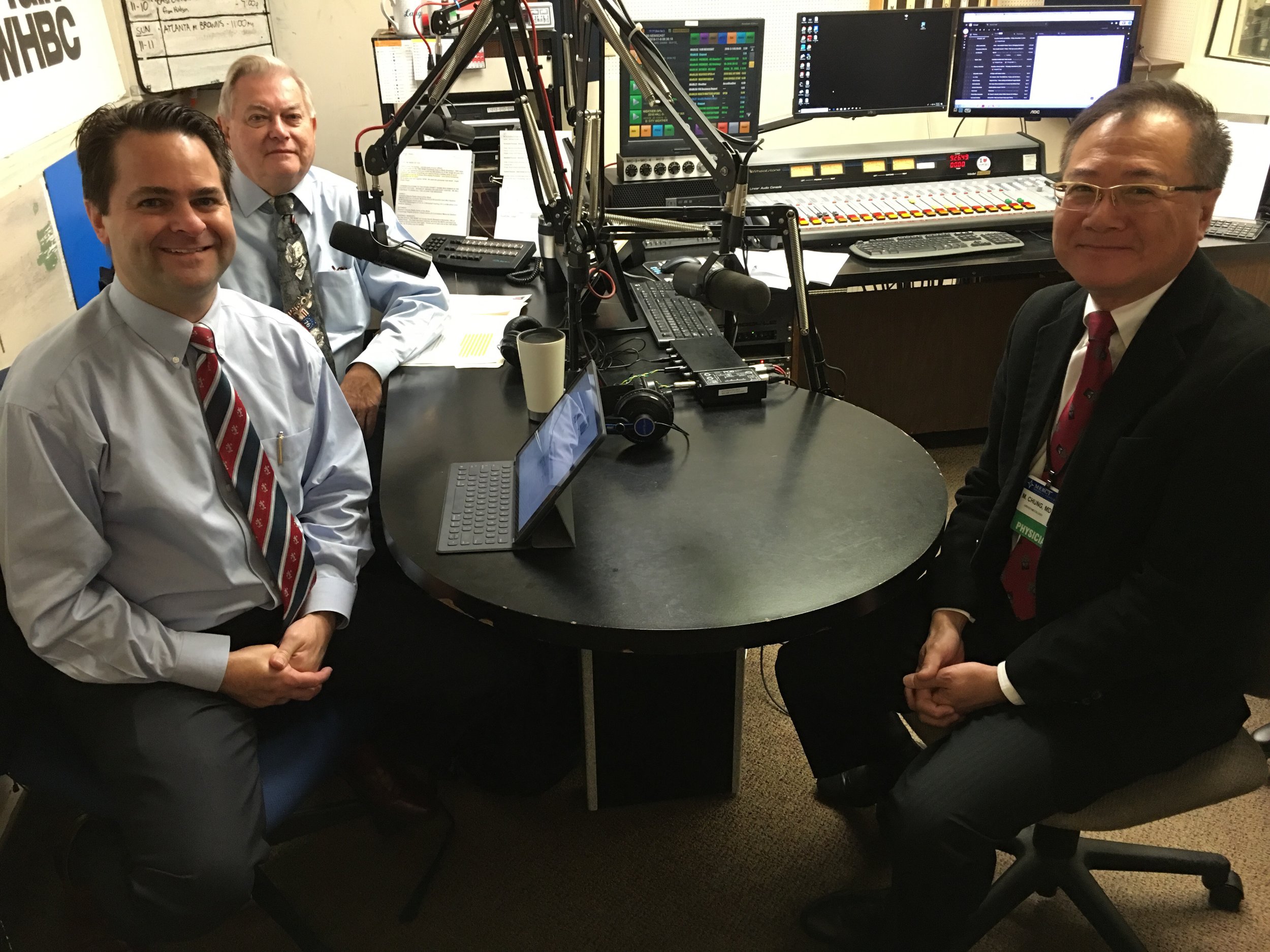

















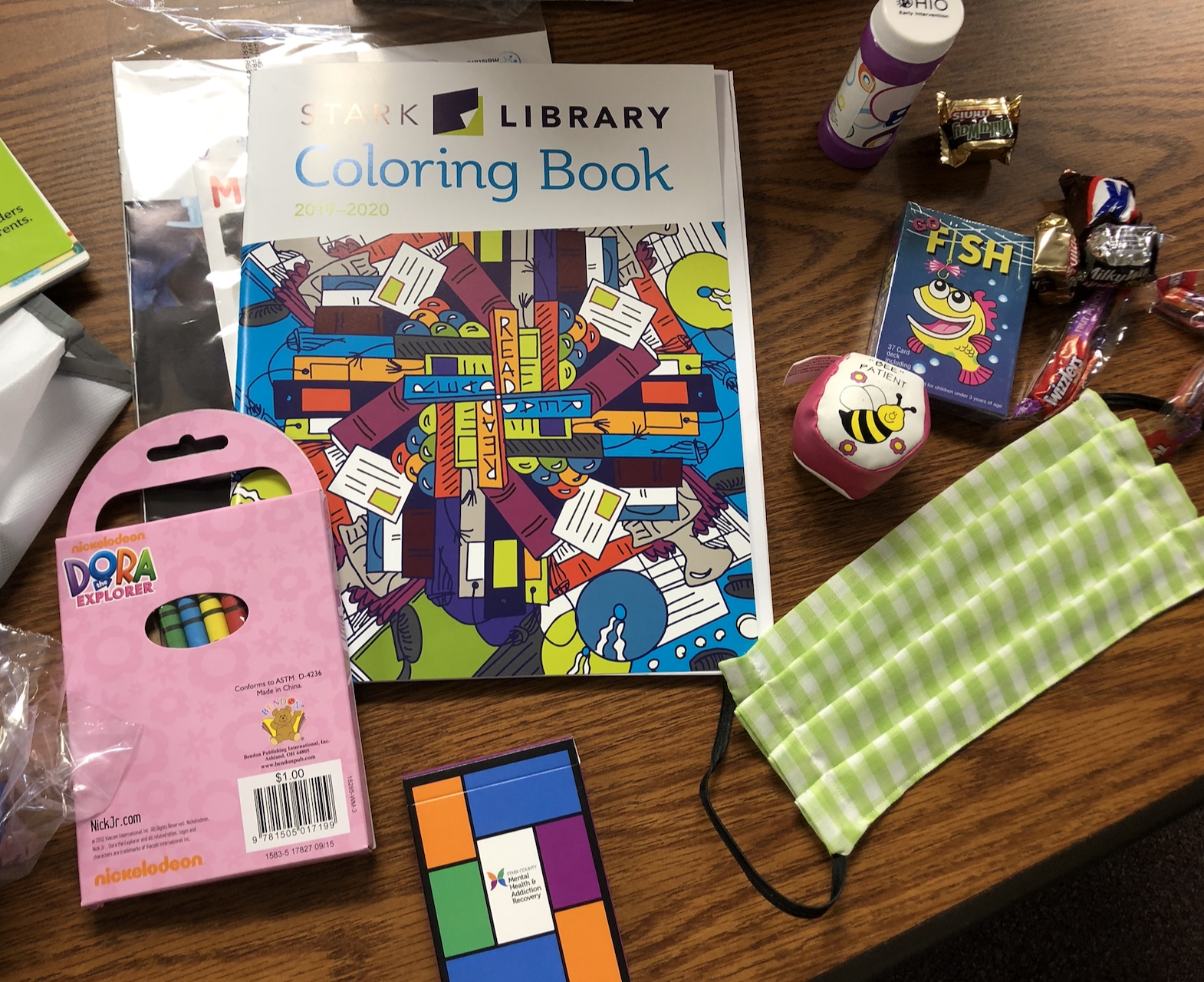
















Palliative care is specialized care for people of any age and at any state of serious
illness. Aultman’s services guide patients through pain and symptom management
while they are seeking aggressive layers of physical, emotional and spiritual
support for patients and their families.